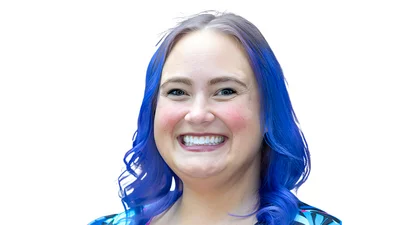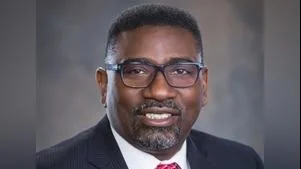Chuck Wichgers, Wisconsin State Representative for 84th District | Official Website
Chuck Wichgers, Wisconsin State Representative for 84th District | Official Website
According to the Wisconsin State Legislature's official website, the bill was described as follows: "representations depicting nudity and providing a penalty".
The following is our breakdown, based on the actual bill text, and may include interpretation to clarify its provisions.
In essence, the bill creates new legal provisions addressing synthetic intimate representations, commonly known as "deep fakes," expanding existing laws against unauthorized distribution of intimate images. It defines synthetic intimate representations as those generated using technological means to depict a person's face or likeness in an intimate manner, regardless of whether such components are artificial, legally generated, or publicly accessible. It assigns a Class I felony to those who post, publish, or exhibit these representations with intent to coerce, harass, or intimidate. Additionally, it categorizes the reproduction of private, sexually explicit images without consent as a Class A misdemeanor, aligning it with current laws against the unauthorized posting of these images. These changes would take effect upon enactment.
The bill was co-authored by Senator André Jacque (Republican-1st District), Representative Scott Allen (Republican-82nd District), Representative Clinton M. Anderson (Democrat-45th District), Representative Elijah R. Behnke (Republican-6th District), and Representative Lindee Rae Brill (Republican-27th District). It was co-sponsored by Senator Jodi Habush Sinykin (Democrat-8th District), Senator Cory Tomczyk (Republican-29th District), and Senator Melissa Ratcliff (Democrat-16th District), along with 12 other co-sponsors.
Chuck Wichgers has co-authored or authored another 21 bills since the beginning of the 2025 session, with none of them being enacted.
Wichgers, a Republican, was elected to the Wisconsin State Assembly in 2025 to represent the state's 84th Assembly district, replacing previous state representative Bob Donovan.
In Wisconsin, the legislative process starts when a senator, constituent, group, or agency proposes an idea for a bill. After drafting, the bill is introduced, numbered, and referred to a committee for review and public input. If approved, it moves through three readings and votes in both the Senate and Assembly. Once both chambers pass the same version, the bill goes to the governor, who can sign it, veto it, or let it become law without a signature. Only a small share of bills introduced each session ultimately become law. You can learn more about the Wisconsin legislative process here.
| Bill Number | Date Introduced | Short Description |
|---|---|---|
| AB33 | 02/17/2025 | Representations depicting nudity and providing a penalty |






 Alerts Sign-up
Alerts Sign-up